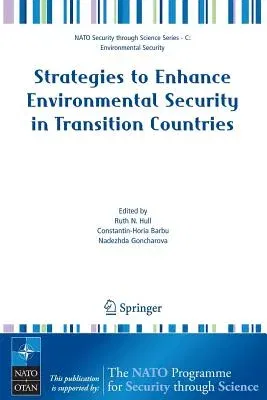Strategies to Enhance Environmental Security in Transition Countries (2007)Paperback - 2007, 12 April 2007

Qty
1
Turbo
Ships in 2 - 3 days
In Stock
Free Delivery
Cash on Delivery
15 Days
Free Returns
Secure Checkout
Part of Series
NATO Security Through Science Series C:
Part of Series
NATO Science for Peace and Security Series / NATO Science fo
Print Length
429 pages
Language
English
Publisher
Springer
Date Published
12 Apr 2007
ISBN-10
1402059957
ISBN-13
9781402059957
Description
Product Details
Book Edition:
2007
Book Format:
Paperback
Country of Origin:
NL
Date Published:
12 April 2007
Dimensions:
23.39 x
15.6 x
2.31 cm
Genre:
Developing World
ISBN-10:
1402059957
ISBN-13:
9781402059957
Language:
English
Location:
Dordrecht
Pages:
429
Publisher:
Series:
Weight:
621.42 gm

